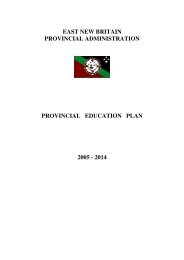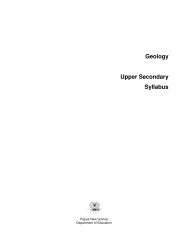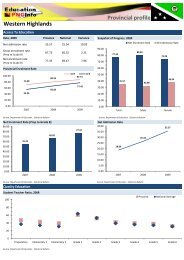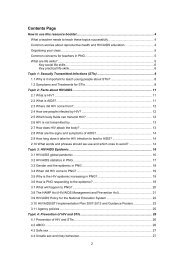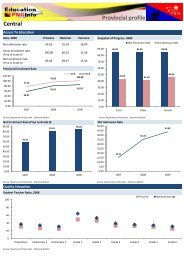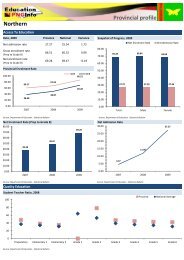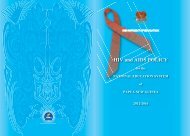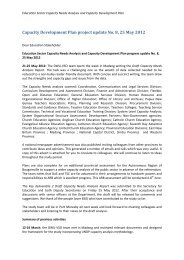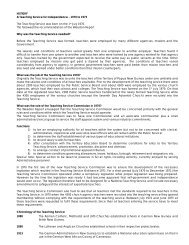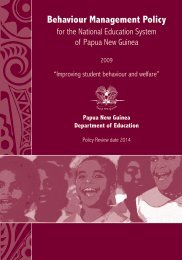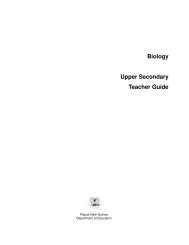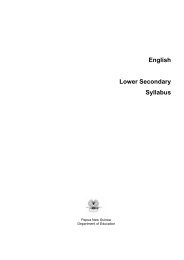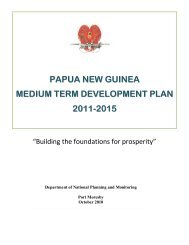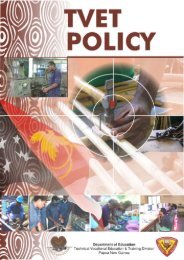Physical Education - Department of Education
Physical Education - Department of Education
Physical Education - Department of Education
You also want an ePaper? Increase the reach of your titles
YUMPU automatically turns print PDFs into web optimized ePapers that Google loves.
<strong>Physical</strong> education<br />
Projects<br />
A comprehensive study which can be<br />
practical in nature, such as a<br />
performance or display item, or<br />
theoretical in orientation, such as<br />
research on a community or personal<br />
issue. The manner <strong>of</strong> presentation<br />
may be set by the teacher or left as a<br />
matter for student choice.<br />
Gymnastics display item<br />
Personal health appraisal<br />
Research project on a health promotion initiative<br />
Self-assessment<br />
Sentence completion<br />
This strategy requires students to be<br />
self-reflective, to set their own<br />
standards <strong>of</strong> behaviour and make<br />
judgements about their own work. It<br />
is a strategy that should be used for<br />
formative purposes only.<br />
A method <strong>of</strong> gathering information by<br />
providing the beginning <strong>of</strong> a sentence<br />
as a stimulus and inviting students to<br />
complete the sentence in their own<br />
words.<br />
Video analysis <strong>of</strong> own skills performance<br />
‘I’ messages<br />
Keeping journals on social skills<br />
My favourite sport is<br />
Fair play is<br />
A good sportsperson is<br />
Fitness is<br />
This table was adapted from:<br />
Personal Development, Health and <strong>Physical</strong> <strong>Education</strong> Year 7 – 10.<br />
Support Document, Board <strong>of</strong> Studies, New South Wales 1991<br />
Reporting<br />
When the time comes for formal reporting through written reports or<br />
interviews, teachers can look at all the evidence <strong>of</strong> students’ learning in<br />
student portfolios and in their own records, and decide which outcomes<br />
individual students have achieved and report this information clearly to<br />
parents. Teachers should highlight what students have done well and how<br />
they can improve further. The National Assessment and Reporting Policy<br />
outlines what is required in formal school reports.<br />
Evaluation<br />
Assessment information can also be used by teachers to evaluate the<br />
effectiveness <strong>of</strong> their teaching. By analysing class results as a whole,<br />
teachers can identify subjects, strands, substrands and outcomes where the<br />
students have done well and those that require further or improved teaching.<br />
Similarly, a whole school can analyse results by subjects, strands and<br />
substrands or by grades, and identify areas <strong>of</strong> strength and areas which<br />
need further attention. For example, if a whole school is not performing well<br />
in Mathematics, then Mathematics could become the focus for inservice and<br />
resource development for the next year. In this way assessment information<br />
serves two purposes:<br />
• to improve students’ learning<br />
• to improve the quality <strong>of</strong> teaching.<br />
21



